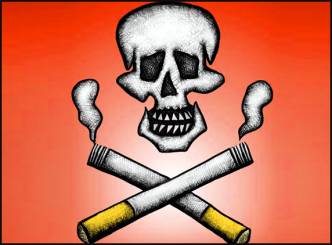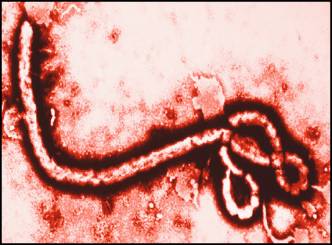
Why do people smoke? Common sense tells us that it is bad for us -- inhaling smoke and particulate matter into your lungs is bad for you no matter if it is from a fire or a cigarette. Medical science tells us every time we look at a pack of cigarettes that smoking can cause birth defects, heart problems, and other scary medical problems. Why do people smoke when it is obvious so unhealthy for them?
Who Are Smokers?
While people of every social and economic class smoke, we know that a certain type of person is more likely to smoke than others. People who topped out with just a high school diploma or less education are more likely to smoke than people who are better educated. Could this be because people who have more education simply understand the health effects more?
We know that blue collar workers are far more likely to smoke than people in corporate positions. Conventional wisdom holds that these people's jobs are fairly dreary repetitive things that "excuse" the use of cigarettes . . . as if having a crappy job gave you an excuse to hurt yourself with cigarettes.
In the same vein, people in lower income brackets are far more likely to smoke than people with more money. Why do people who make less money end up spending a large portion of their money on cigarettes? These questions don't have very clear answers. There are some other interesting facts about people who smoke -- for instance, women who work are more likely to smoke than women who stay at home. Also, we know that children from homes where the parents and siblings smoke pick up the habit more frequently than children in smoke-free homes.
Why do People Start Smoking?
Why do People SmokeThis is a controversial question. There is no hard and fast answer to the question of why a person would start smoking.
Advertising techniques used by cigarette companies are usually the scapegoat. You'll hear anti-smoking activists repeating facts about smoking advertising and its impact on the smoking population -- for instance, it is often said that In the first 4 years of the infamous "Joe Camel" ad campaign, the number of smokers under age 18 raised from 1% to as much as 30%. What is the basis for this story? Unfortunately for the anti-smoking crowd, there's nothing factual to back up this claim. Can't we just agree that marketing cigarettes in a way that appeals to kids is wrong without needing statistics as ammunition?
To be sure, cigarette ads in the past were a bit over the top. The message seemed to be "If you smoke, you will be popular and desirable." Thankfully, much of that advertising is now illegal, and you won't see cigarette ads in many places outside of magazines aimed at adults. Gone are the television commercials and cartoon-infested billboards of old.
Still -- cigarette manufacturers are finding different ways to get their message across. "Candy-flavored" cigarettes and nicotine products in bright packaging with sweet flavors are coming out all the time, though legislation is being enacted that will put a stop to this, too. Women are a particularly fond target of cigarette manufacturers -- the idea that smoking keeps you thin is often espoused, wordlessly, in ads aimed at the female population. You think that Virginia Slims are called "Slims" simply because the cigarette itself is skinny? Regardless of how you feel about cigarette ads and their impact on the consumer, the cigarette companies themselves feel very strongly about their ad presence -- the six major American cigarette companies spend over three billion dollars a year on advertising.
Peer Pressure
As an ex-smoker myself I can tell you that a big reason for smoking in teenagers and children is simple peer pressure. When you think "peer pressure", don't assume this means some older bully forcing a younger child to smoke a cigarette. Peer pressure can mean lots of different kinds of pressure -- a parent's smoking may make it seem acceptable to a child, or a teenager who doesn't smoke may see a large number of their friends doing it and simply decide to smoke to stay in line with the group.
It is difficult to counteract the powerful forces of peer pressure. Teenagers want to fit in, and let's face it -- many people like to smoke. It can help you get through that last hour of a long day at work, it goes good with a beer, and most of the people you see smoking on TV and in movies seem to be having a good time. Why wouldn't you want to smoke?
Answering that last question may be our best defense against peer pressure. Educating children and teenagers about not just the dangers but the downsides of smoking is crucial in allowing them to make a smart decision about smoking. Talk about the smell, the expense, and the social isolation that can come with smoking, not just the fact that it can cause cancer and other health problems.
There are plenty of reasons why people start to smoke though I'd argue that cultural and personal influence are the main factors in a person's cigarette habit. Understanding why a person smokes is key to helping them quit -- how can you quit doing something if you don't know why you do it in the first place?
Whether you smoke because yo're addicted, because you want to fit in, or simply because you enjoy smoking, having a working knowledge of your body's addiction will only benefit you on the road to quitting a tobacco habit.














